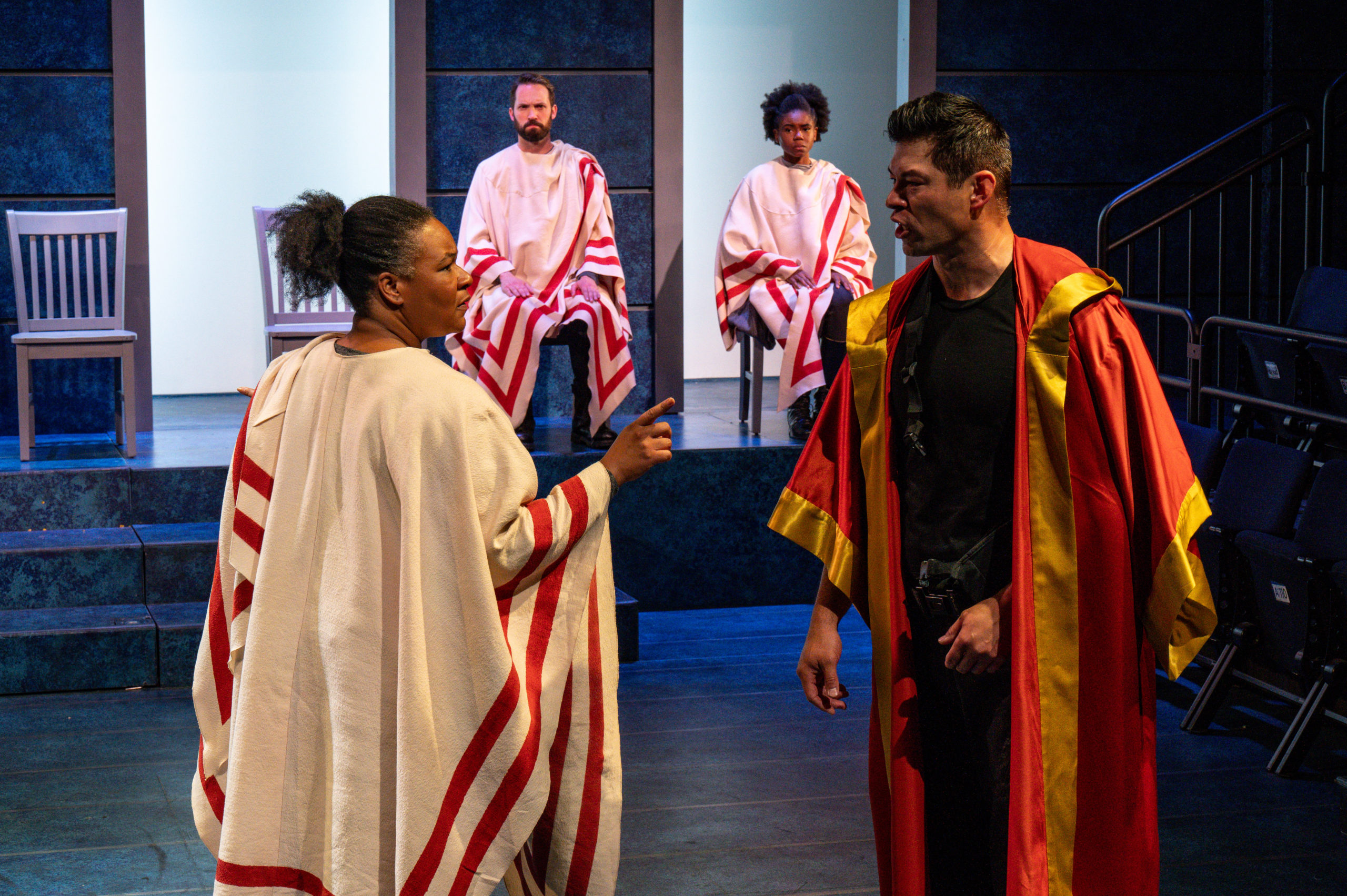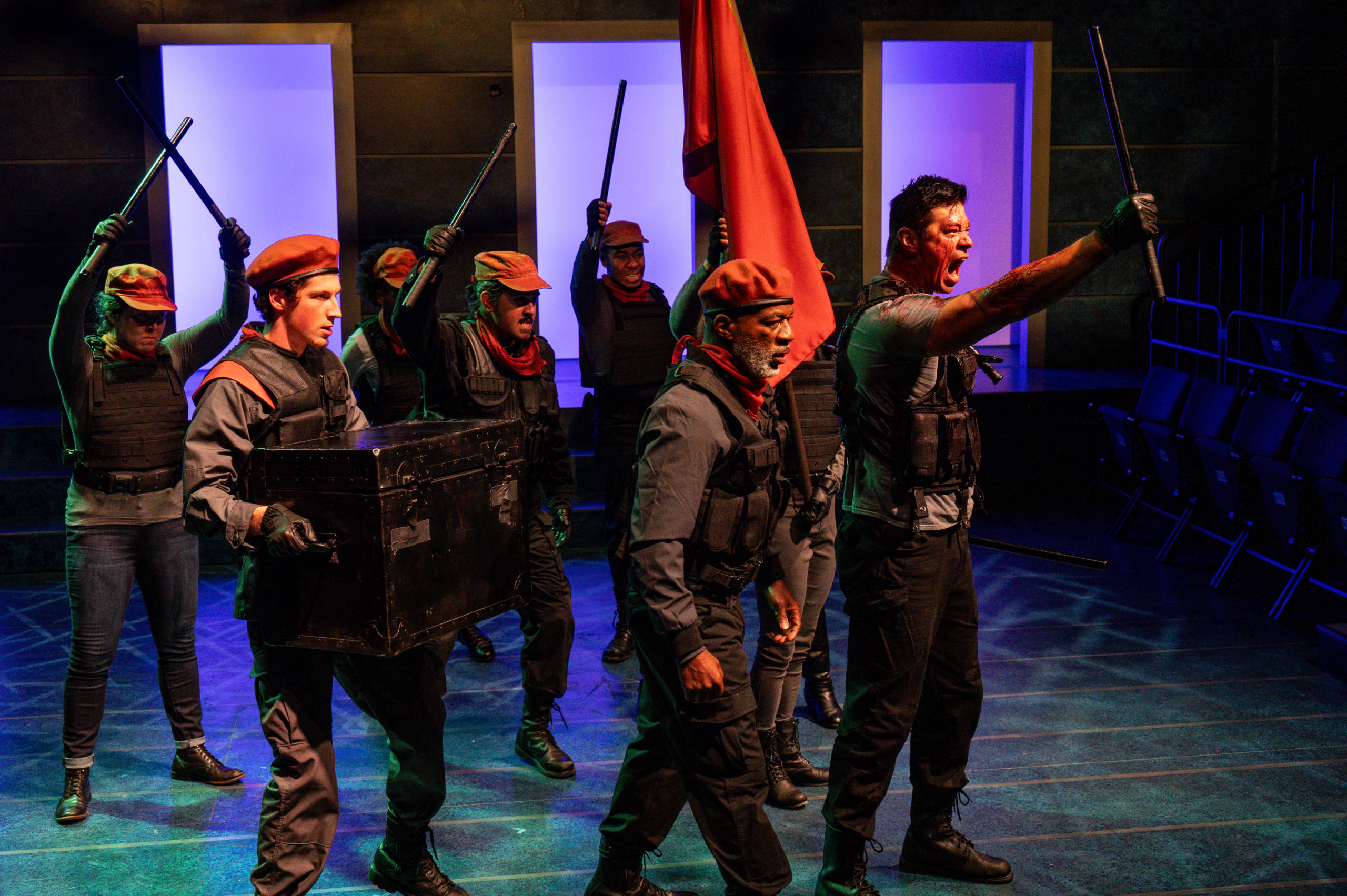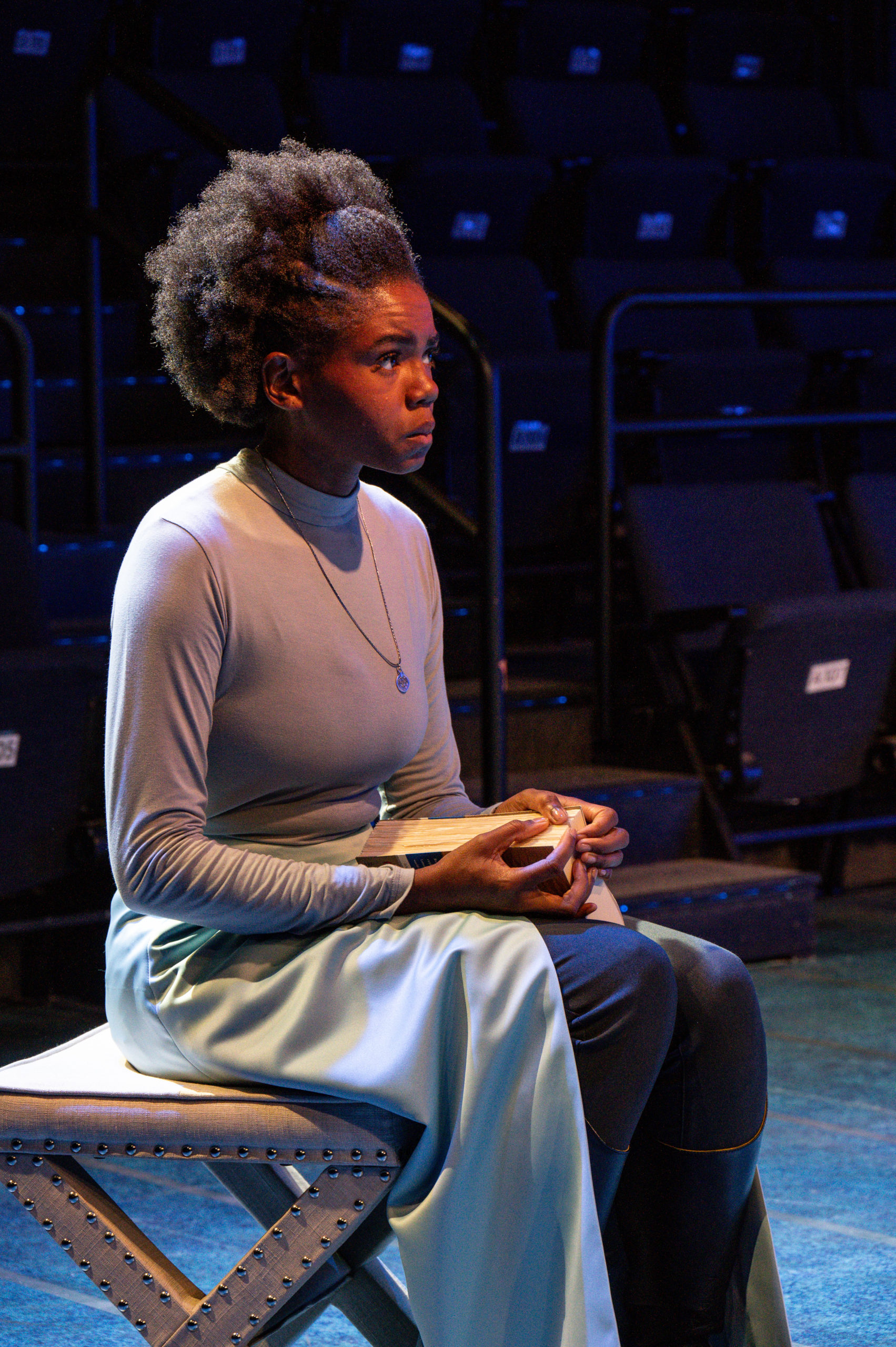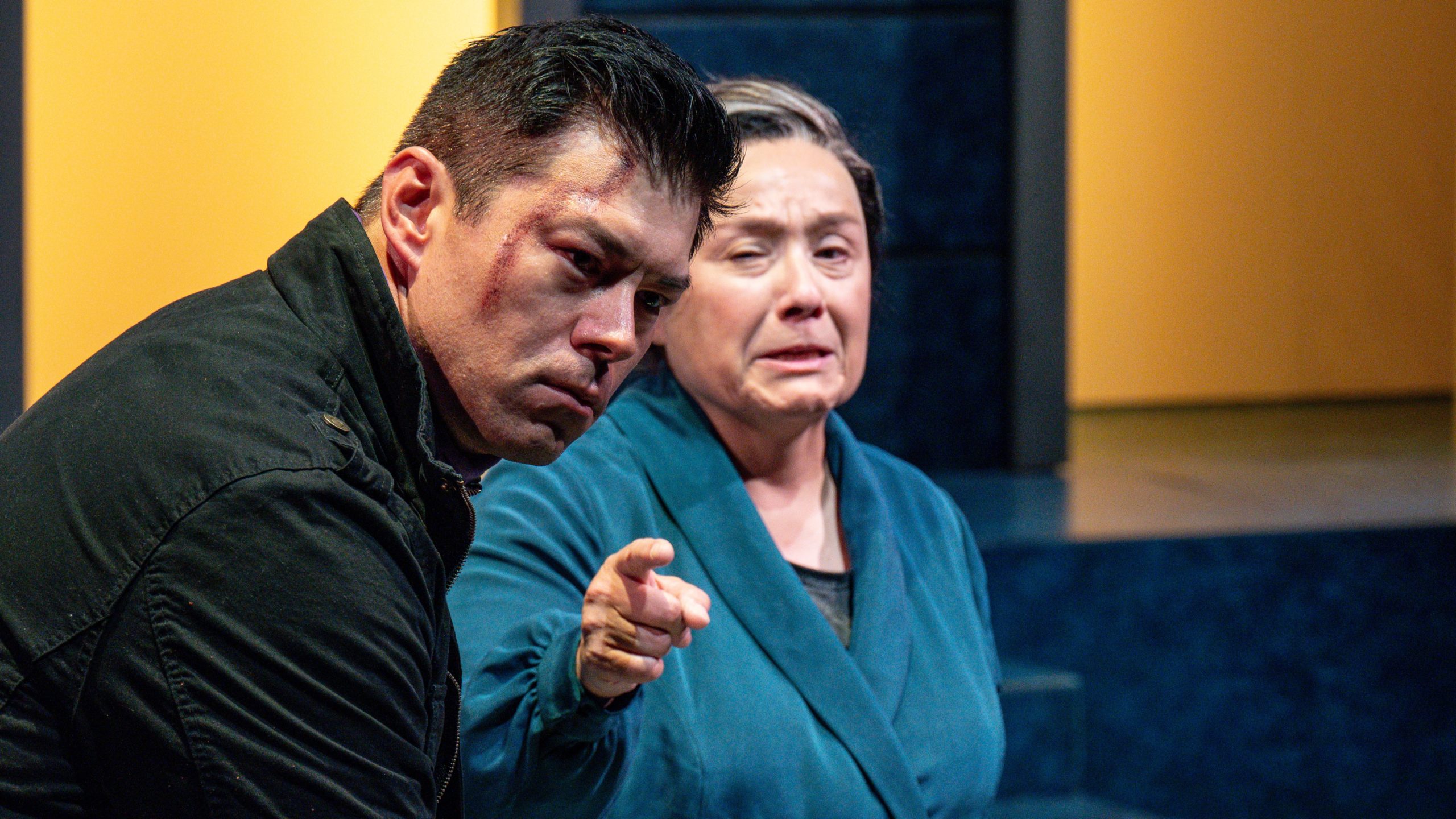CEDAR CITY — For some people, the idea of seeing a Shakespeare play can be intimidating. “You expect me to not only understand, but enjoy, a 2½-hour Roman political drama spoken in 17th century English?” The Utah Shakespeare Festival has spent decades honing and refining their work to include pre-show and post-show seminars that make works — such as the rarely produced play of Coriolanus — not only accessible but thought provoking and personal. I benefited from both of these, but my guest to the play went into the play completely blind. Both of us walked away asking the same question: “Who knew that Shakespeare wrote a Rambo play?” The Utah Shakespeare Festival as an incredible production of Coriolanus that I am itching to see again.

The third longest Shakespeare play, Coriolanus begins as the story of a military man named Caius Martius, who has earned the ire of Rome’s citizens. In a time of famine, Caius tells the Roman plebes that they cannot draw from the nation’s grain stores unless they enlist in the military to fight a war with the neighboring Volsces (pronounced “vul-shuhs”) in the city Corioli. Caius is captured after scaling the wall to the enemy fort, but comes screaming and covered in blood back to his side of the line, having fought his way out through the city. He is hailed a hero, given a garland of victory and the title “Coriolanus” which means “victor of Corioli.” Caius, now Coriolanus, is nearly elected to the office of consul, until the senators view him as too popular and powerful and seek to sabotage him. He is banished from wife, children, mother, home, and country.
The success of this show starts with director Lisa Peterson and dramaturg Dr. Isabel Smith-Bernstein’s adaptation of the script. Unabridged, this play would run well over three hours. Instead, Peterson and Smith-Bernstein have taken strong source material and created a tightly focused, action-packed story rich with punchy comedy, potent tragedy, and political tension that challenges social issues from a variety of perspectives. The vast majority of the production was Shakespeare’s original dialogue, but a few well placed moments of modern exposition helped viewers understand the context without getting bogged down in the details. It was one of the strongest adaptations I have seen of a Shakespeare play.

In Peterson’s staging, Coriolanus is an ensemble work. The voice of the plebeians would often get riled up in one direction, only to have a vastly different opinion a few moments later. Peterson and a strong ensemble worked to get the audience to chant, clap, and jeer along with them, which I heartily did. It was only later I felt implicated as an audience member for cheering and jeering at the whims of whoever told me to do so. At one point an actor in the ensemble, explaining their wishy-washy nature delivers the line,
“and so did I; and, to say the truth, so did very
many of us: that we did, we did for the best; and
though we willingly consented to his banishment, yet
it was against our will.”

James Ryen, who played Coriolanus looked the part of a towering, jacked military lifer. He commanded the stage at all times, and I jumped when, from behind me, he bellowed, “Come I too late?” before surging back into the battle covered in blood. Ryen has a difficult task to navigate in Coriolanus. Beyond making difficult language clear and understandable, Ryen also needed to make a tyrant a figure of sympathy. On the one hand, Coriolanus is a hardened, blood-thirsty warrior whose temper and brashness are off-putting to so many. On the other hand, Coriolanus is a tender and pliable mama’s boy whose lack of control over his feelings makes him blubber and weep kneeling before his mother in most convincing fashion. Ryen crafted these two sides into a powerful presence whose immaturity makes him susceptible to being manipulated by nearly everyone. Ryen’s Coriolanus, paradoxically, seemed to control every person, but be controlled by every situation and made the complexity of the character shine through. It was an impressive performance.
I was also impressed by Anatasha Blakely’s work as Menenius Agrippa. Blakely was an understudy filling in for a colleague and had a digital script in hand for much of the performance. This, however, did not deter from a stellar reading of the character. Blakely delivered hilariously stinging barbs in her delivery of lines. She tormented other senators and guards in her scenes. She grasped the emotional content of Menenius as one of Coriolanus’ anchors and advocates and was able to deliver lines with a nuance that showed clearly this understanding of character. She exemplified what the whole cast demonstrated in making complex language simple and accessible for a modern audience. Voice and text coach Phillip Thompson must have been thrilled.

The technical elements were simple but added greatly to the play’s efficacy. Shakespeare makes it difficult to blame one person or group for society’s issues in the play. The lighting design by Tom Ontiveros used criss-crossing gobos on the play to add texture to the set, but also sent the message that following any one line would not lead to a simple answer. I appreciated the tension added between transitions and in key moments by the sound designer and original music composer of Paul James Pendergast. Often, the actors reacted to sounds strategically created and positioned in the space to make it seem like thronging crowds or battalions were approaching. The costumes had a modern-ish feel using the politically modern, neutral colors of purple and orange. A simple but minimal set which used doors, chairs, and little else gave the audience the space to imagine spacious Roman senate houses as well as smoldering and ravaged battlefields. I loved it.
Coriolanus may not carry the same title weight as a play like Romeo and Juliet or A Midsummer Night’s Dream that are also currently playing at Utah Shakespeare Festival. It is, however, a tragic and timely story of the ways in which divisive and impulse driven politics can destroy the best of individuals and societies. This production had a little bit of everything: creative staging, adrenaline-inducing fights, heart-wrenching tragedy, and sharp wit to tie it together. I “could be content to give good report for’t.”
[box]The Utah Shakespeare Festival production of Coriolanus plays various dates at 2 PM or 8 PM through October 7 at the Anes Studio Theatre on the campus of Southern Utah University. Tickets are $60. For more information, visit bard.org.[/box]

